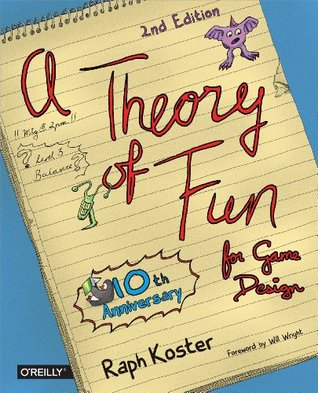More on this book
Community
Kindle Notes & Highlights
“Music is ordered sound and silence.”
· Flag
Ivan · Flag
Alex A.
We know from experiments that probability is something our brains have serious trouble grasping.
Games tend to be experiential teaching. Stories teach vicariously. Games are good at objectification. Stories are good at empathy. Games tend to quantize, reduce, and classify. Stories tend to blur, deepen, and make subtle distinctions. Games are external — they are about people’s actions. Stories (good ones, anyway) are internal — they are about people’s emotions and thoughts. Games are generators of player narratives. Stories provide a narrative.
“If a man isn’t liberal when he’s 20, he has no heart. If he’s not conservative when he’s 40, he has no brain.”
PEOPLE ARE LAZY.
the point at which a player chooses to repeatedly play a game they have already mastered completely, just because they like to feel powerful, is the point at which the game is betraying its own purpose. Games need to encourage you to move on. They are not there to fulfill power fantasies.
games exist within the confines of “let’s pretend,” they also offer a lack of consequences.
there are two sorts of people in this world, those who divide everyone into two sorts of people and those who don’t.
Right now, most games are about violence. They are about power. They are about control. This is not a fatal flaw. Practically any form of entertainment is about sex and violence, if you want to look at basic building blocks. But these emotions are often contextualized into love, yearning, jealousy, pride, coming of age, patriotism, and other subtler concepts. If you took out all the sex and all the violence, you wouldn’t have very many movies, books, or TV shows.
Ivan liked this
But my kids are showing me that childhood is also a state of mind.
there are only two responsible ways to behave with such a tool: either step away from it altogether and let someone qualified take it up, or take it up and be as qualified as you can.
One of the most famous examples of mental imagery in the last 100 years is shown in the film The Pianist, where Wladyslaw Szpilman, played by Adrien Brody, “plays” piano while hovering his fingers above the keys, so as to avoid detection by the Nazis.


